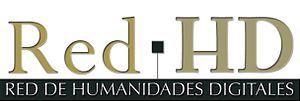Submissions/Production of knowledge/fr

Wikimania will be partnering with the Digital Humanities Network, Red HD a regional group of researchers and practitioners, to present an international track of talks and panels by multidisciplinary experts that will cover such subjects as human knowledge, their production, and the technology in the digital world: where do we stand, in terms of philosophy, anthropology, sociology, and their related fields?
We would like to especially encourage students, researchers, activists, and enthusiasts to submit their proposals for sessions on any of the following topics, within the greater context of Wikimania:
- Encyclopedias in the 21st century
- The idea of gathering knowledge in a single place has a deep historical context. Humanity has managed to divulge and systematize knowledge under certain paradigms, although this is by no means the only way of parting or dividing human knowledge. How are reference materials created, edited, and transmitted nowadays?
- Digital humanities
- Projects and initiatives based on digital humanism. Presentations on collaborative, open and/or free projects are preferred.
- Production of knowledge
- How is knowledge produced and reproduced in our times, given the technological possibilities available? What kind of changes happen in the fields of knowledge production and learning because of technology?
- Discussion of Wikipedia's values
- Free culture, encyclopedic relevance, neutrality, truth. Wikipedia is based on five core principles, called the Five Pillars. What can we reflect, critique, question, or discuss about these principles?
- Digital collaborative environments
- Technology and education. How do they coexist? What kind of projects exist in Mexico and Latin America?
The Wikimania 2015 committee and the Digital Humanities Network (RedHD) invite anyone interested in submitting a proposal for sessions to send it to the following address: wikimania2015![]() gmail.com with "Proposal in Production of Knowledge" as the Subject. The proposal must include the following:
gmail.com with "Proposal in Production of Knowledge" as the Subject. The proposal must include the following:
- Session title
- Author
- Association (College or University, organization, or similar). (This is not obligatory.)
- Adresse e-mail
- Session abstract in no more than 300 words
- Keywords, maximum of 5
The submissions will be evaluated by a committee composed of members of Wikimania 2015 and RedHD.
By submitting a proposal, you must agree that:
- your proposal's abstract and any slides associated with it will be released under the Creative Commons Attribution Share-Alike Licence 3.0; and
- if accepted, the session will be broadcast and/or recorded and made available in audio and/or visual form under said license.
Durée des présentations
To accommodate as many presentations as possible, we strongly suggest that you limit your proposed session's length to be a maximum of 30 minutes, including time for questions. You can request additional time, which may be granted if your accepted presentation is particularly extensive. The program committee may offer a shorter slot than you propose if time in the schedule is tight.
Acceptation
Authors will be notified of paper acceptance or rejection no later than April 1, 2015. If your paper is accepted and you need an invitation letter to apply for a visa to attend the conference, please contact wikimania-info@wikimedia.org as soon as possible. (Visa applications can take at least 60 working days to process.) Please identify yourself as a presenter and include your mailing address in your email.
By submitting a paper, you agree that at least one of the authors will attend the conference to present it.
About the RedHD
The RedHD was created by a group of researchers and practitioners interested in promoting and institutionalizing Digital Humanities in June 2011. Our aims are to promote and strengthen work on humanities and computing, with special emphasis on research and teaching in Spanish speaking countries as well as the Latin American region in general. The RedHD supports better communication between digital humanists in the region, the formation of human resources, preparation of documentation and good practices, the promotion of DH projects, dissemination of DH related events as well as promoting the recognition of the field. Additionally we seek to promote regional projects and initiatives on an international level.
